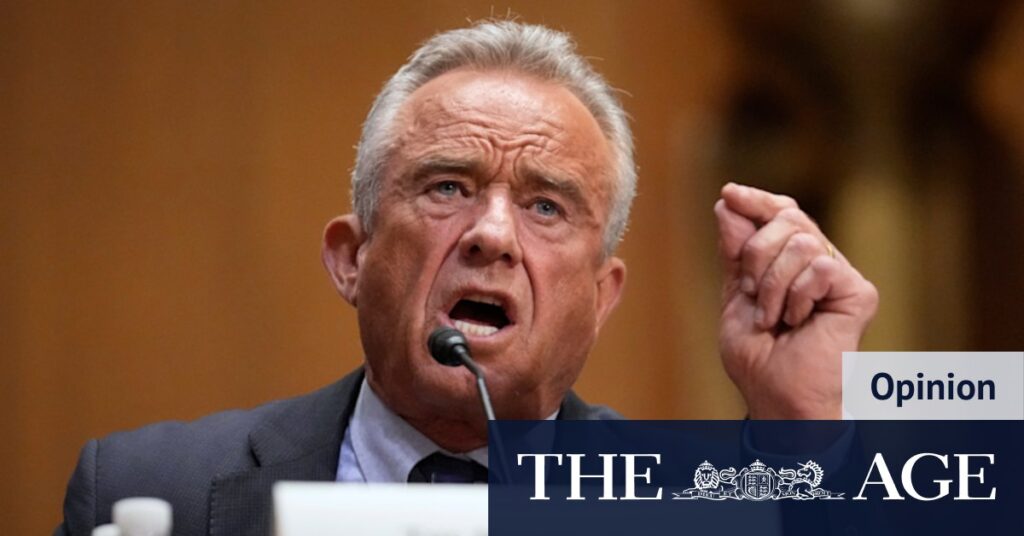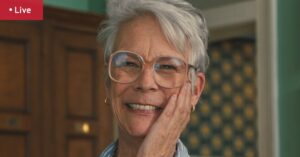
In a controversial move that has sparked a national debate, Florida’s health authorities announced plans to end all vaccine mandates, a decision that has left many parents and health professionals deeply concerned. The announcement was made by Florida’s Surgeon General, Joseph Ladapo, who declared that children would no longer be required to receive vaccines for diseases such as measles, mumps, chickenpox, and polio before attending school.
Ladapo’s statement, made during a press conference, drew immediate attention. He questioned the role of government in personal health decisions, stating, “Who am I, as a government or anyone else, who am I as a man standing here now to tell you what you should put in your body? Your body is a gift from God.” His remarks were met with applause from anti-vaccine advocates but caused alarm among medical professionals.
The Broader Context of Vaccine Mandates
This development follows a trend of increasing vaccine skepticism in the United States, a country once at the forefront of public health initiatives. Historically, vaccine mandates have been instrumental in eradicating diseases such as polio, which was declared eliminated in the U.S. in 1979. The World Health Organization credits vaccines with saving at least 154 million lives over the past 50 years, predominantly among children.
Florida’s decision would lift mandates on vaccines for diseases including hepatitis B and pneumococcal diseases such as meningitis, with the changes expected to take effect in about 90 days. However, removing mandates for diseases like polio and measles would still require legislative approval.
Reactions from the Medical Community
The American Medical Association (AMA) has strongly opposed the plan, warning that it “would undermine decades of public health progress and place children and communities at increased risk for diseases such as measles, mumps, polio, and chickenpox resulting in serious illness, disability, and even death.”
“While there is still time, we urge Florida to reconsider this change to help prevent a rise of infectious disease outbreaks that put health and lives at risk,” stated Sandra Adamson Fryhofer of the AMA.
Even before this announcement, doctors across the nation have been raising alarms about declining vaccination rates and the spread of vaccine misinformation. Many fear a resurgence of diseases long thought controlled, with pediatricians like Perri Klass expressing concern over preventable diseases re-emerging.
National Implications and Political Underpinnings
Meanwhile, at a national level, Health Secretary Robert F. Kennedy Jr. has faced criticism for his handling of vaccine policies. Known for his controversial views on vaccines, Kennedy was recently scrutinized during a Senate hearing for not upholding promises to protect vaccine access and for his decision to dismiss the leader of the Centers for Disease Control and Prevention (CDC).
As vaccine mandates face potential rollbacks, public health experts warn of the consequences. Earlier this year, Texas experienced a measles outbreak resulting in over 700 cases and the deaths of two unvaccinated children. Such incidents underscore the critical role vaccines play in disease prevention.
According to the World Health Organization, “Science has proven that vaccines save lives – at least 154 million in the past 50 years, mostly children.”
Looking Ahead
The move represents a significant shift in public health policy, one that could have far-reaching effects. As the debate continues, the question remains whether other states will follow Florida’s lead or uphold existing vaccine mandates. For now, the medical community and concerned parents watch closely, aware that the stakes involve not just policy but the health and safety of future generations.
In the coming months, as Florida’s legislature considers further changes, the nation will be watching closely, aware that the implications of these decisions extend beyond state borders. The unfolding situation serves as a reminder of the delicate balance between individual freedoms and community health, a balance that is now more precarious than ever.






